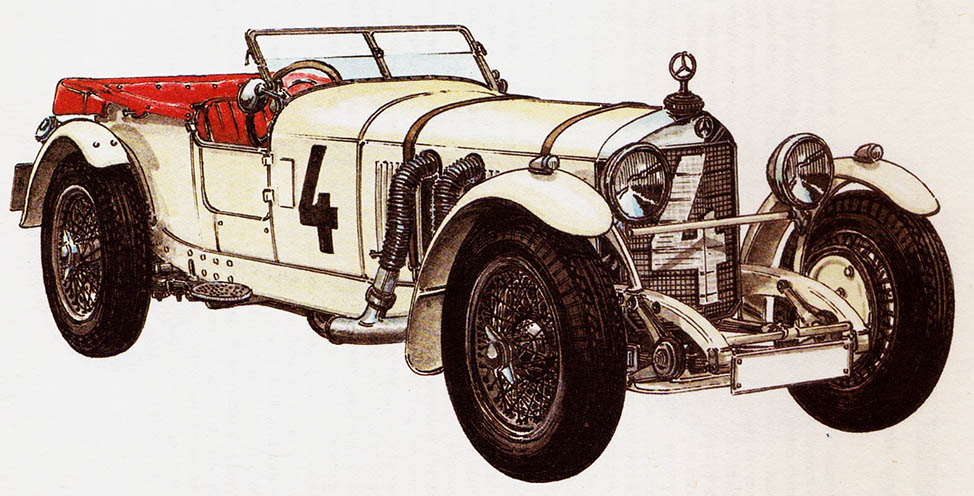MERCEDES-BENZ SS – year 1928
Daimler Benz AG, Stuttgart, Germany.
Season 1928 and the European Grand Prix in Monza belonged to a Bugatti car. The race was the most tragic accident in the history of the Grand Prix competition. Well, the Italian driver Materassi has lost control of his Talbot, fell off the track and into the crowd, causing death 22 viewers and hurting many. In the same year, the German Grand Prix race was also held in the Nurburgring.

Daimler Benz AG, Stuttgart, Germany.
After the merger of Daimler and Benz in Stuttgart, the company was established in 1926 year, the first sports car to be designated as Mercedes-Benz K.. This model was the basis for the later designs marked with the S symbols, SS, SSK and SSKL. Typ S, where Merz won the German Grand Prix at the Nurburgring in 1927 year, it was equipped with a six-cylinder overhead valve engine with a capacity 6789 cm3 i mocy 88,3 kW (120 KM), possibly 132,5 kW (180 KM) with recharge. W 1928 In the year, the SS type was constructed, which, with the piston stroke unchanged, had an increased cylinder diameter z 98 mm do 100 mm, resulting in a total capacity 7065 cm3. A six-cylinder overhead valve engine with a compressor developed power 147,2 kW (200 KM) by 3000 RPM. The chassis was characterized by a low frame made of steel sections, rigid bridges and longitudinal leaf springs. Chassis with different body versions were sold. The price of the chassis was 3100 RM. The car reached its maximum speed 190 km/h. W 1926 Ferdinand Porsche left Daimler-Benz, and for the further development of car design, the excellent designer Hans Nibel had a decisive influence. At that time, Mercedes SS cars were also popular among private users. Thus, different versions of the SS type could be seen in many races as passenger cars with a four-seater body, as sports cars, and also as Grand Prix racing cars. The SS type started its career in Grand Prix racing very effectively, when, after starting in the Nurburgring, he took the first three and fifth place. The winning Mercedes SS was driven by Rudolf Caracciola and Christian Werner at an average speed 103,216 km/h. The second was Otto Merz, the winner of the previous year, and the third was Willy Walb.